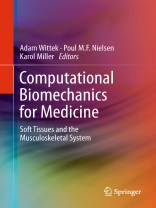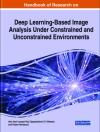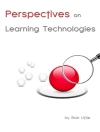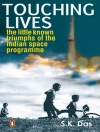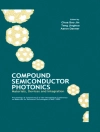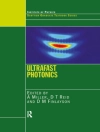One of the greatest challenges for mechanists is to extend the success of computational mechanics to fields outside traditional engineering, in particular to biology, biomedical sciences, and medicine. The proposed workshop will provide an opportunity for computational biomechanics specialists to present and exchange opinions on the opportunities of applying their techniques to computer-integrated medicine.
These are peer-reviewed proceedings of the workshop affiliated to a major international research conference (Medical Image Computing and Computer Assisted Intervention MICCAI 2010 in Beijing) dedicated to research in the field of medical image computing and computer assisted medical interventions.
The list of subjects covered include: medical image analysis, image-guided surgery, surgical simulation, surgical intervention planning, disease prognosis and diagnostics, injury mechanism analysis, implant and prostheses design, medical robotics.
表中的内容
Part I: Computational Biomechanics of Soft Tissues, Flow and Injury Biomechanics
– Development of Total Human Model for Safety (THUMS) Version 4 and Its Application to Biomechanical Research, by T Yasuki
-Investigation of Brain Trauma Biomechanics in Vehicle Traffic Accidents using Human Body Computational Models by J Yang
-Blood Flow Simulation in a Giant Intracranial Aneurysm and its Validation by Digital Subtraction Angiography, by H Ho, et. al.
-Patient Specific Hemodynamics: Combined 4D Flow-Sensitive MRI and CFD, by A.F. Stalder, et. al.
-The Effects of Young’s Modulus on Predicting Prostate Deformation for MRI-Guided Interventions by S Mc Anearney, et al.
-On the Effects of Model Complexity in Computing Brain Deformation for Image Guided Neurosurgery by J Ma, et. al.
-Total Langrangian Explicit Dynamics-Based Simulation of Tissue Tearing by K. Vemaganti et. al.
-Real-Time Nonlinear Finite Element Computations on GPU – Handing of Different Types by G Joldes, et. al.
-Mapping Breast Cancer between X-Ray and MR Images by H Reynolds, et. al.
-Incompressible Biventricular Model Construction and Heart Segmentation of 4D Tagged MRI by A. Montillo et. al.
-Cardiac Strain and Rotation Analysis Using Multi-Scale Optical Flow by H.C. van Assen et. al.
Part II – Computational Biomechanics of Muscoskeletal System and Its Tissues. Generation of Patient-Specific Finite Element Meshes.
-Compuational Foot-Ankle-Knee Models for Joint Biomechanics and Footwear Design by Z Ming.
-Segmentation of Skeletal Muscle Fibers for Applications in Computational Skeletal Muscle Mechanics by O. Rohrle, et. al.
-A Quantitative Description of Pelvic Floor Muscle Fiber Organization by X Yan et. al.
– An Evaluation of Tetrahedral Mesh Generation for Non-Rigid Registration of Brain MRI by P.A. Foteinos et. al.
关于作者
Adam Wittek,
The University of Western Australia, Intelligent Systems for Medicine Laboratory
http://www.uwa.edu.au/people/Adam.Wittek
Selected Awards
2002: Ralph H. Isbrandt Automotive Safety Engineering Award (together with Y. Matsui of JARI, A. Konosu of JARI, and M. Tanahashi of Honda R&D). This award annually recognises individuals for their outstanding contribution to Society of Automotive Engineers literature which advances the field of automotive safety engineering.
Poul M.F. Nielsen
Associate Professor, U of Auckland
http://www.abi.auckland.ac.nz/uoa/poul-nielsen
